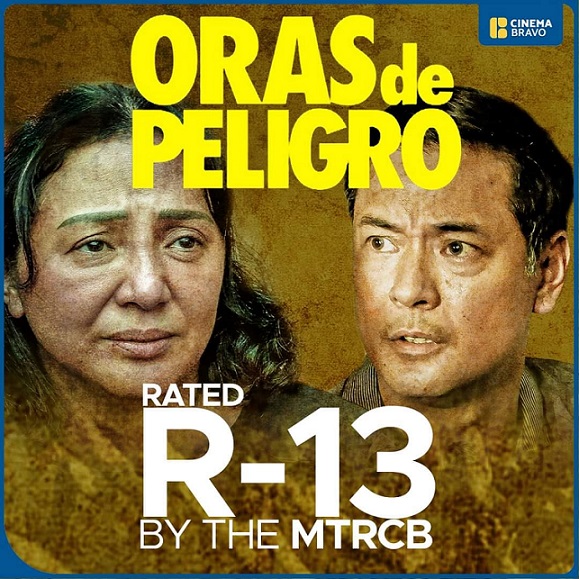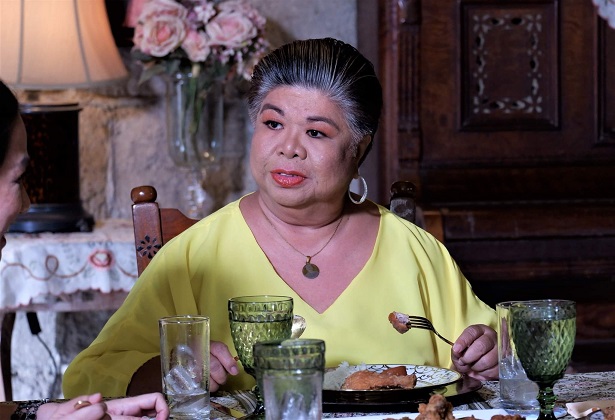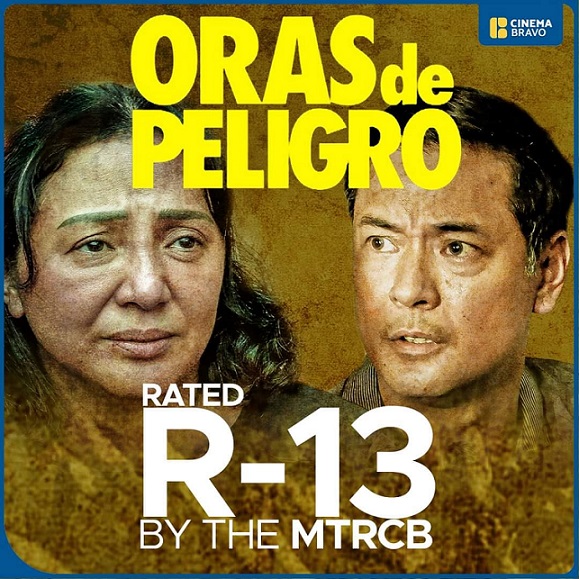
Many things stay in the mind long after you have watched Joel Lamangan’s Oras de Peligro.
It has news reels of the 1986 People Power which got world-wide attention for a “bloodless revolution.”
There is a historic footage of Juan Ponce Enrile in his younger years withdrawing support for the Marcoses along with the then equally younger Fidel Ramos.
You see the famous balcony scene of the Marcoses holding fort before the fateful hour when a plane would transport them to Hawaii with enormous amount of their wealth that took more than a week for the Hawaii customs office to itemize.
For once you are reminded that the older Marcos is really determined to take over as permanent president of the Republic of the Philippines after twenty years of the so-called New Society.
As the Senate proclaims Ferdinand Marcos as “the newly elected president of the Republic,” the story of a typical poor Filipino family unfolds.
The news reels slowly fade as you focus on jeepney driver (Allen Dizon) and his wife (Cherry Pie Picache).
They manage to raise good kids on top of trying to survive on meager wages.
But it is the year of living dangerously.
Checkpoints have proliferated.

Poor jeepney driver and his passengers are victimized by holduppers (a common occurrence that remains to this day).
Among the victims is a businessman with his week’s income in a paper bag full of money bills. He hands it over to the driver (Dizon) for possible safekeeping.
But the policemen supposed to come to the rescue of the commuters and poor driver have other things in mind when they see cold cash.
In the end, they get rid of the driver and drive away with a paper bag full of cash. Not knowing that there was one silent, terrified witness who saw it all.
Meanwhile, poor driver goes home as a lifeless body.
It is the fate of the typical Filipino family that they have no money for even a decent burial. And worst, they have no money to pay the funeral parlor.
They struggle to raise fund from concerned neighbors.

The newsreels return in the middle of a poor family’s struggle to give breadwinner a decent burial.
News reels show Cardinal Sin imploring the Filipino people to support Enrile and Ramos.
Meanwhile, the witness of the cold-blooded murder of jeepney driver surfaces.
As the film ends, the Marcoses are already in Hawaii.
Meanwhile, poor family is still raising funds for burial. To make matters worse, the policemen realize the long suffering widow (Picache) is determined to get justice for her husband.
There is frantic fight for the custody of the dead breadwinner.
Policemen realize an autopsy might uncover the fact that policemen’s bullets (and not the holduppers’ gun) were responsible for the poor driver’s death.
As the poor family struggles to seek justice, the news reels return announcing the sudden changing of the guard in Malacanang.
Oras de Peligro is a simple story of a Filipino family caught in the maelstrom of history as the new presidency beckons with the 13th and the first female president of the republic.
Screen writers Boni Ilagan and Eric Ramos manage to merge real events with a typical profile of the Filipino family coping with social injustice.
The screen sizzles with first-rate performances from the ensemble.
While he appears only at the beginning of the film, Dizon as the jeepney driver leaves a mark of a good actor.
The trio of corrupt policemen (Apollo Abraham, Jim Pebanco, and Rico Barrera) look so real and so wicked they might as well be proclaimed villains of the year.
The character of Alan Paule is symbolic of society’s predators preying on innocent young women.
The father-in-law of the jeepney driver’s wife (Nanding Josef) delivers a nuanced, if, well-cantilevered performance that touches the soul.
Mae Paner as Ma’am Jessa went to town chanting “Mambo, Mambo Magsaysay” which brought back the innocent 50s. She is the symbol of the concerned middle class eschewing the character with a heart of gold.
The other members of the cast who delivered outstanding performances are Therese Malvar, Dave Bornea, Marcus Madrigal, Carlos Dala, Felixia Dizon, and Elora Espano.
Moreover, the presence of Cherry Pie Picache as Beatriz (the jeepney driver’s wife) gives this film a fitting symbol of the wife who finally wakes up to the reality that she has to fight to get justice. Her character transition is by all means the mark of a good actor.
With outstanding direction and riveting screenplay and a superb acting ensemble, Oras de Peligro is easily the most powerful film of the decade.
The eerie silence from its audience before the screen credits is ominous.
When they break out into deafening applause at the end means the film can stand with one of the outstanding feature films of the decade.
Surprisingly, there is no reference to any political faction.
It is a poignant story of the Filipino Everyman in the EDSA upheaval of 1986.
It is a simple story truthfully told.
Produced by Bagong Siklab production, Oras de Peligro will have its premiere night February 23, 4:30 p.m. at Cinema 7 of SM Megamall.
It opens in cinemas March 1.
